On View
In Pictures: A Major Faith Ringgold Show at the Picasso Museum Reflects Efforts to Renegotiate the Spanish Painter’s Fraught Legacy
'Black is beautiful' is the acclaimed artist's first large-scale exhibition in Europe.
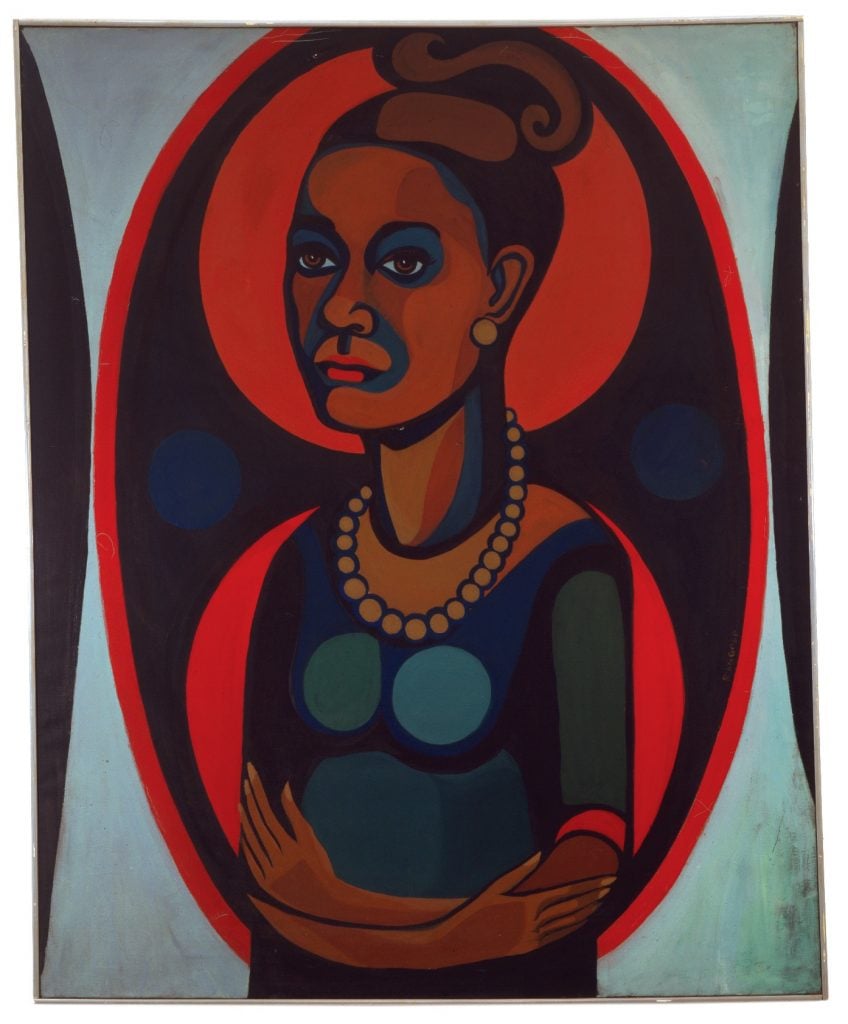
'Black is beautiful' is the acclaimed artist's first large-scale exhibition in Europe.

Vivienne Chow

Faith Ringgold’s black feminist art has been an oversight in the mainstream art world for decades until last year when the New Museum in New York staged a major retrospective surveying her practice. Spanning nearly six decades of her work, it was the largest solo show of the Harlem-born artist since 1998.
This year, in France, the 92-year-old artist is finally getting recognition from the other side of the Atlantic. “Black is beautiful” at the Picasso Museum in Paris is the first presentation of the artist’s rich body of work in France. The exhibition is part of a major overhaul of the museum that marks the 50th anniversary of the Spanish artist’s death; the rehang also hopes to refresh the collection and appeal to younger audiences, many of whom are critical of Picasso’s treatment of women and appropriation of African art in his work.
The presentation of Ringgold’s significant body of work, including a range of story quilts and tapestry, considers her reinterpretation of modern art history, as well as her struggles for civil rights while witnessing the racial conflicts in the United States. The exhibition presents major highlights from Ringgold’s career, including the important series “The French Collection,” which includes 12 quilts the artist made after a 1961 trip to France. Through this work Ringgold “wanted to show there were Black people when Picasso, Monet, and Matisse were making art,” the artist was quoted saying in the exhibition text. “I wanted to show that African art and Black people had a place in that history.”
Cécile Debray, curator of the exhibition and president of the museum, credited Ringgold for reviving the figurative lineage from the Harlem Renaissance and contributing a great deal to the Black feminist art scene.
“Faith’s work, by its plurality, its inventiveness, and its power, is emblematic of a form of utopia, of a certain challenge, that of an art that is both committed, avant-garde and popular, which undoubtedly gives it a wide and very current resonance,” the curator wrote in the exhibition catalog.
Below are the highlights from the exhibition, which is on view until July 2.
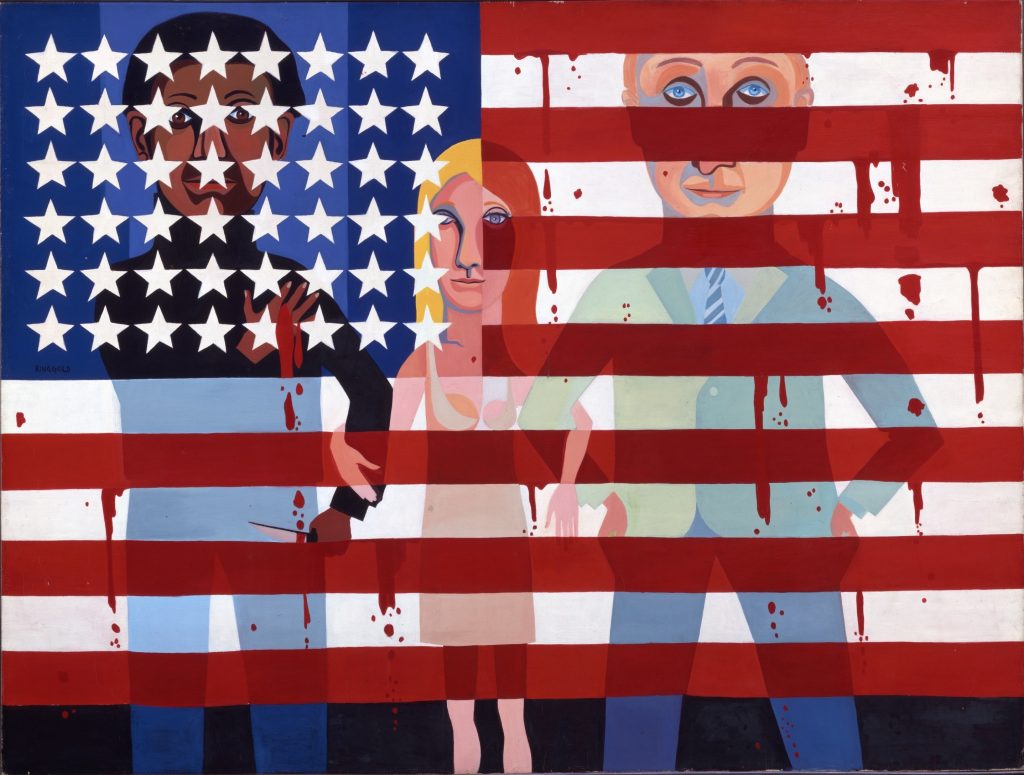
Faith Ringgold, American People Series #18: The Flag Is Bleeding (1967). National Gallery of Art, Washington, Patrons’ Permanent Fund and Gift of Glenstone Foundation (2021.28.1). © Faith Ringgold / ARS, NY and DACS, London, courtesy ACA Galleries, New York 2022
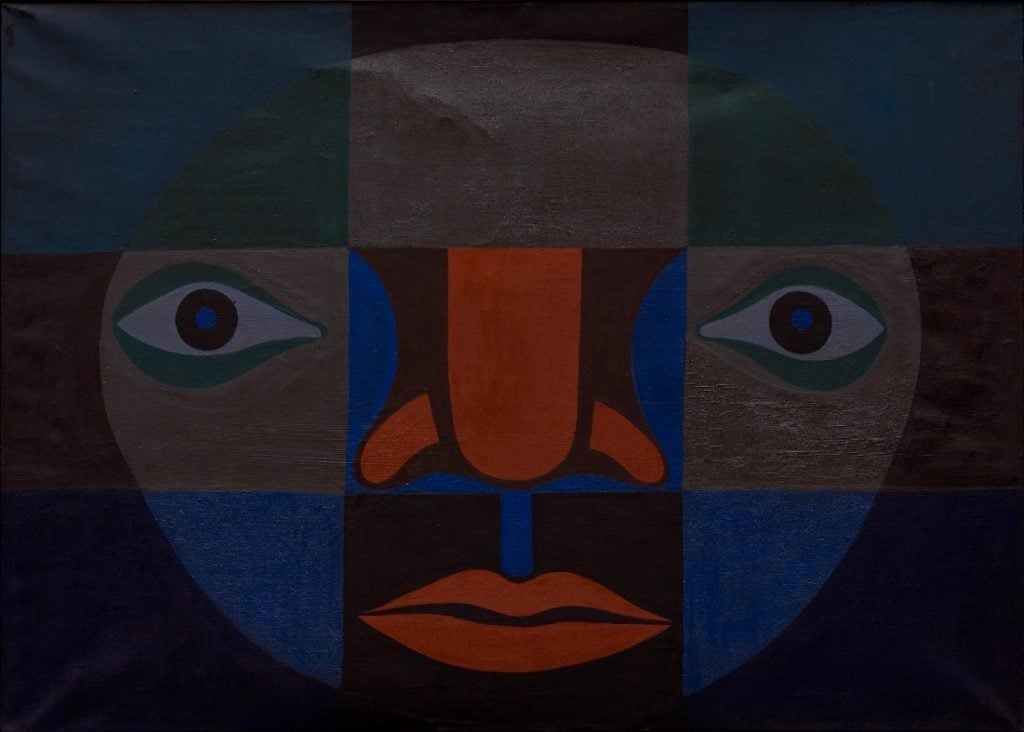
Faith Ringgold, Black Light Series #1: Big Black (1967). Pérez Art Museum Miami, Museum purchase with funds provided by Jorge M. Pérez and the John S. and James L. Knight Foundation. © Faith Ringgold / ARS, NY and DACS, London, courtesy ACA Galleries, New York 2022
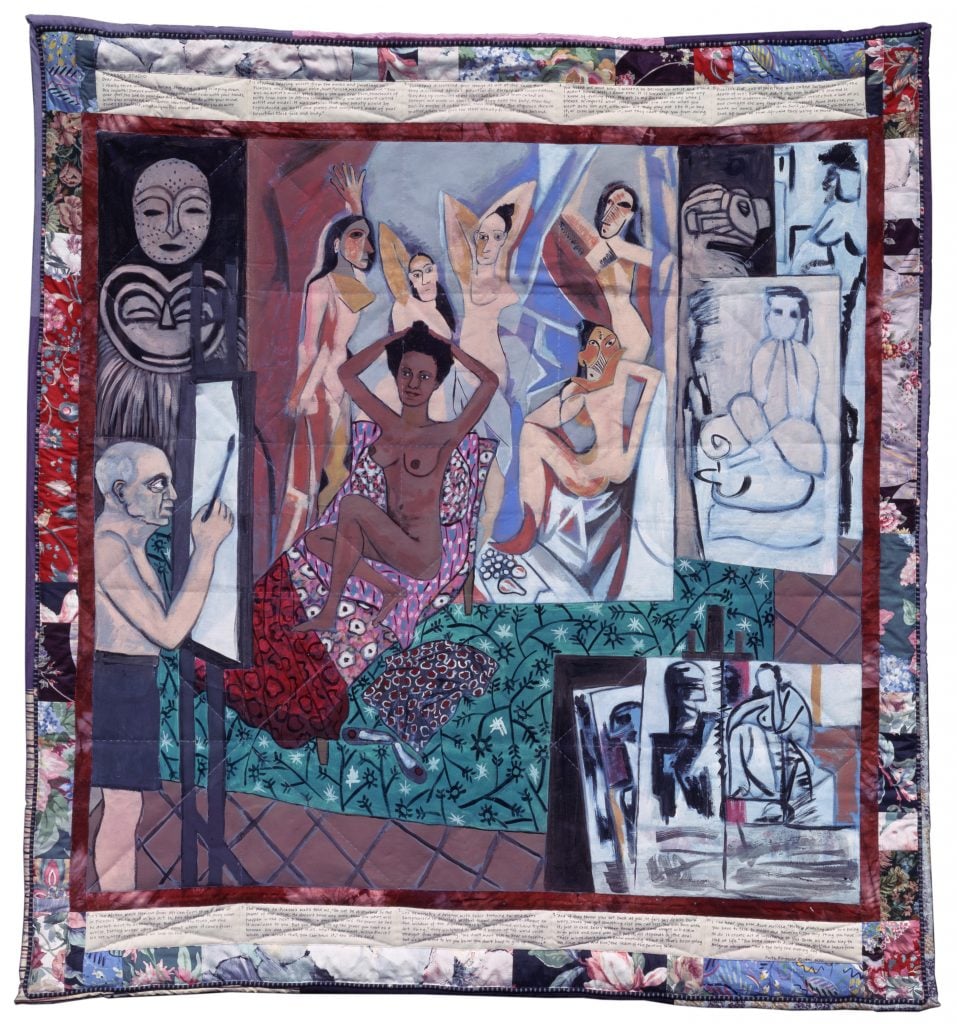
Faith Ringgold, Picasso’s Studio: The French Collection Part I, #7 (1991). Worcester Art Museum; Charlotte E. W. Buffington Fund. © Faith Ringgold / ARS, NY and DACS, London, courtesy ACA Galleries, New York 2022
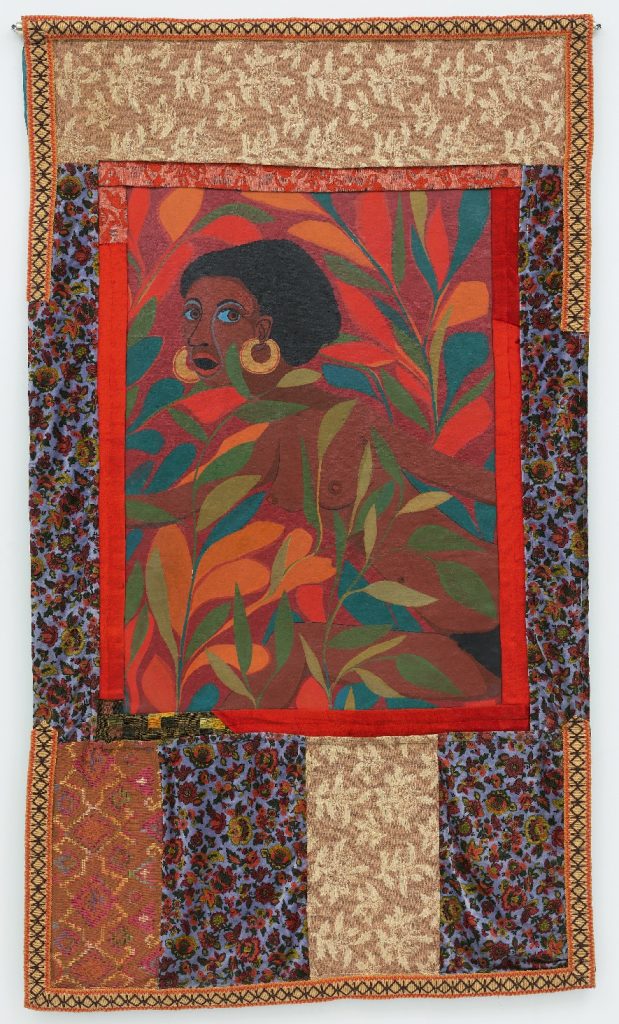
Faith Ringgold, Slave Rape #2: Run You Might Get Away (1972). Glenstone Museum, Potomac, Maryland. © Faith Ringgold / ARS, NY and DACS, London, courtesy ACA Galleries, New York 2022. Photo: Tom Powel Imaging; courtesy Pippy Houldsworth Gallery, London.
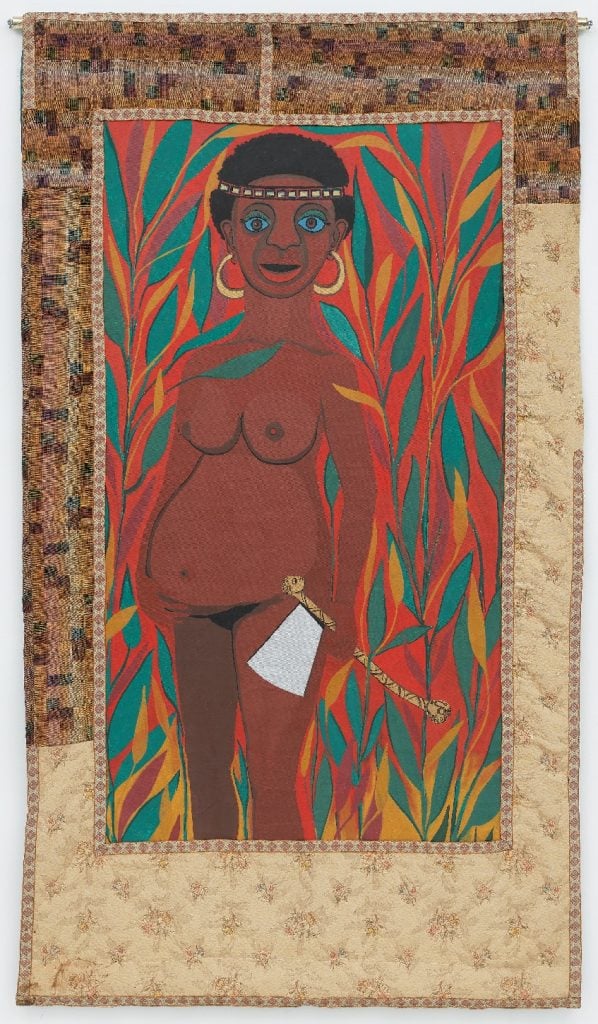
Faith Ringgold, Slave Rape #3: Fight to Save Your Life (1972). Glenstone Museum, Potomac, Maryland. © Faith Ringgold / ARS, NY and DACS, London, courtesy ACA Galleries, New York 2022. Photo: Tom Powel Imaging; courtesy Pippy Houldsworth Gallery, London.
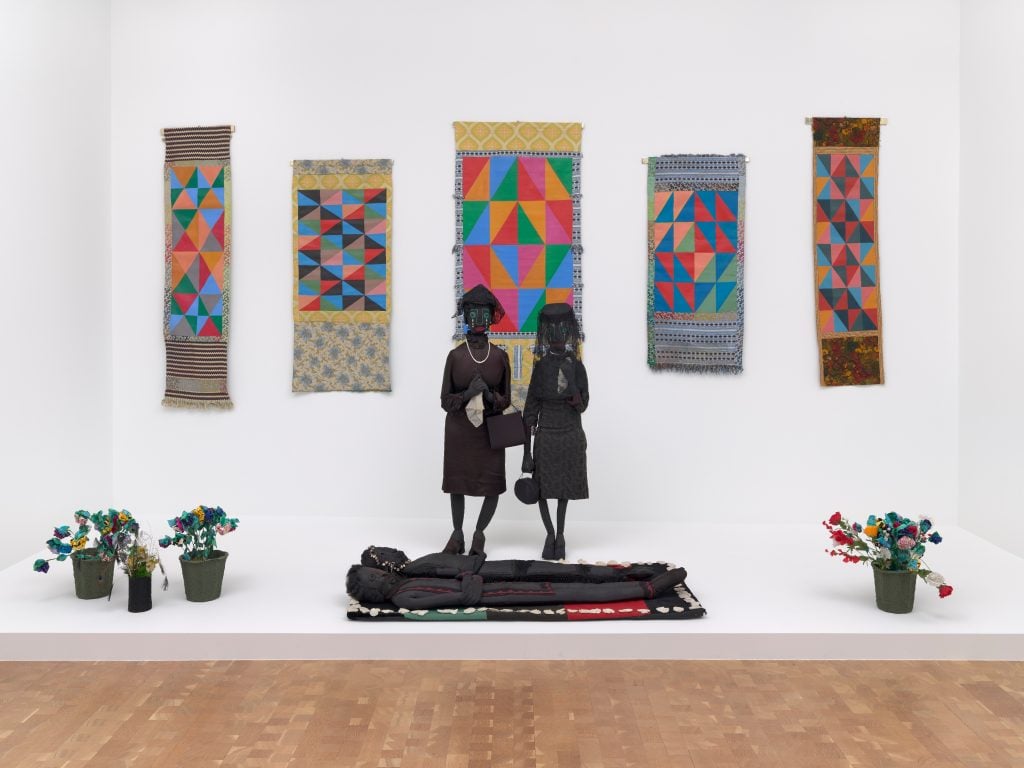
Faith Ringgold, The Wake and Resurrection of the Bicentennial Negro (1975-89). Courtesy the artist and ACA Galleries, New York. © Faith Ringgold / ARS, NY and DACS, London, courtesy ACA Galleries, New York 2022. Photo: Ron Amstutz; courtesy Glenstone Museum, Potomac, Maryland.
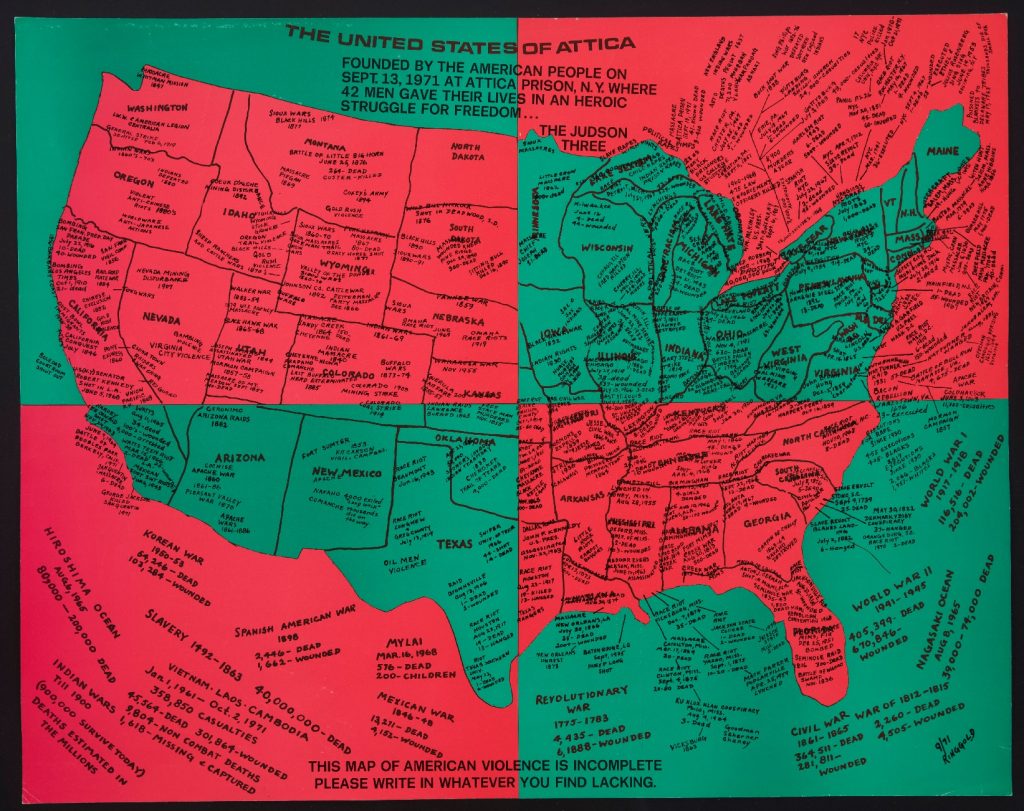
Faith Ringgold, United States of Attica (1972). Courtesy de l’artiste et ACA Galleries, New York. © Faith Ringgold / ARS, NY and DACS, London, courtesy ACA Galleries, New York 2022.
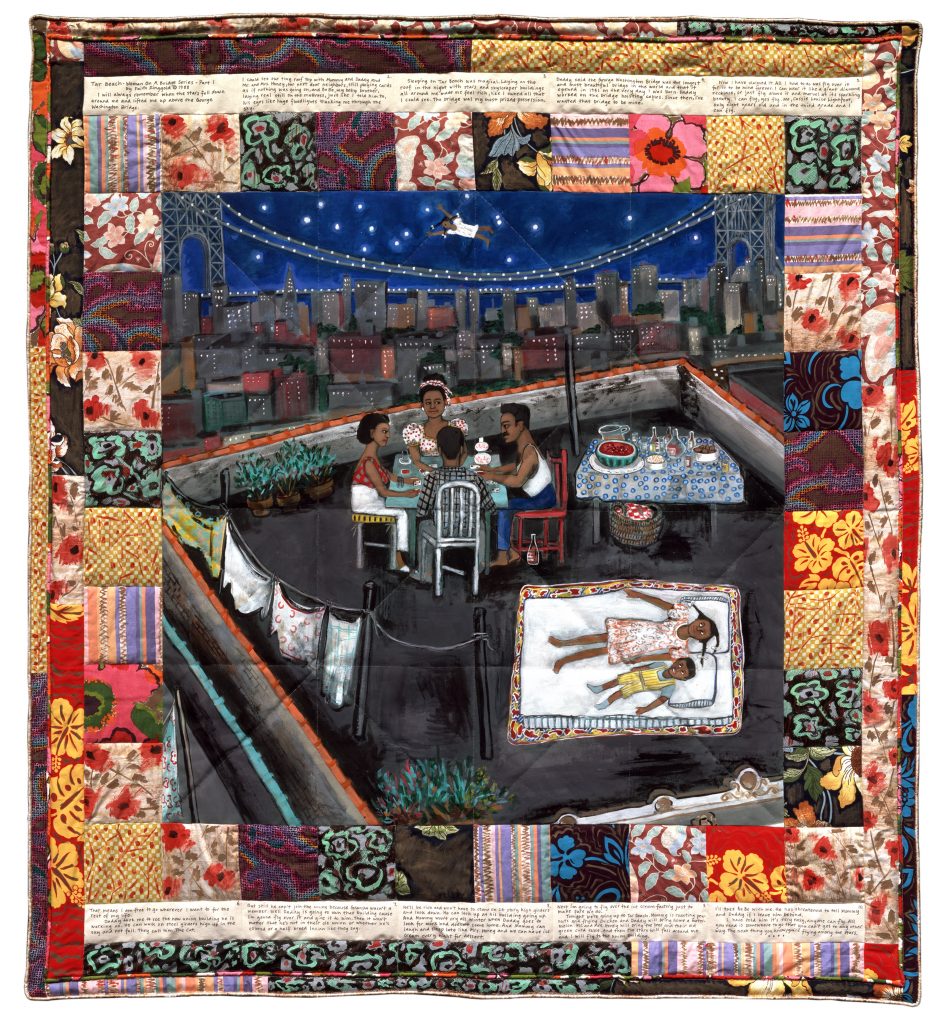
Faith Ringgold, Woman on a Bridge #1 of 5: Tar Beach (1988). Solomon R. Guggenheim Museum, New York; Gift Mr. and Mrs. Gus and Judith Leiber, 88.3620. © Faith Ringgold / ARS, NY and DACS, London, courtesy ACA Galleries, New York 2022.